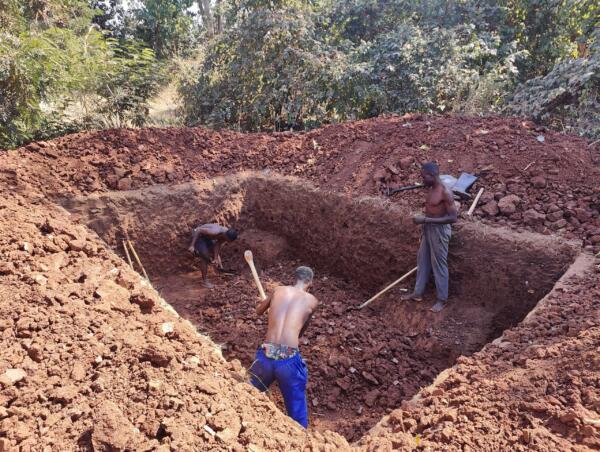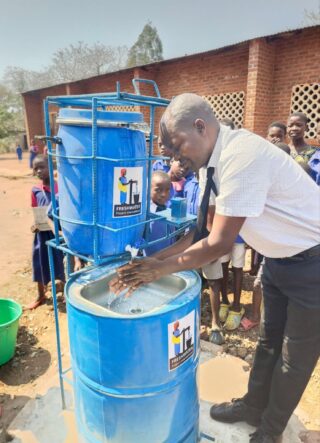Building Better Futures: New Sanitation Facilities at St. Paul's School in Zomba, Malawi
Project Background
.png)
This post was authored by Lauren Clancy, ’24 Communications and Development Intern
(Estimated 2-3 Minute Read)
At Engineers Without Borders USA (EWB-USA), we are dedicated to improving the lives of communities around the world through sustainable engineering solutions. One of our latest projects focuses on enhancing the sanitation facilities at St. Paul’s School in Zomba, Malawi, a critical initiative to provide a healthier and more supportive environment for its 2,500 students.
St. Paul’s School has long struggled with inadequate latrine facilities, which are in disrepair. These conditions pose significant health risks and contribute to poor hygiene standards, impacting the students overall. Recognizing the urgent need for improved sanitation, EWB-USA, in partnership with Freshwater Project International and Xylem, has embarked on a project to construct new latrines that will serve both boys and girls, with special considerations to support adolescent girls during their menstrual periods.
The new construction plan includes four latrines for boys, an additional urinal, and four latrines for girls. Understanding the unique challenges adolescent girls face, one stall in the girls’ latrines has been specially expanded to provide a private space for menstrual care. This designated menstrual space is crucial in ensuring that girls can manage their menstrual health with dignity, allowing them to attend school regularly without interruption.
Many girls miss school during their menstrual periods due to inadequate facilities and a lack of privacy, which can lead to them falling behind academically or even dropping out. By providing a safe, private, and hygienic space, we aim to keep girls in school, supporting their education and promoting gender equality.
Sustainable and Maintainable Solutions
In addition to addressing immediate health concerns, the new latrines have been designed with sustainability and maintenance in mind. One of the common issues with latrines in many parts of the world is that they are often abandoned after they fill up, becoming health hazards. To prevent this, the new latrines at St. Paul’s School have been designed for regular cleanout by local waste removal services. The design ensures that the waste material is accessible with the equipment available in the area, facilitating proper maintenance and usage over the long term.
Furthermore, the superstructures of the latrines will be painted with oil-based paint, making them easy to clean and maintain. This design consideration helps the school maintenance staff keep the facilities in good condition, ensuring they remain a hygienic and pleasant space for students.

Strengthening Communities Through Engineering
This project at St. Paul’s School is a shining example of how engineering solutions can create lasting positive impacts on communities. By providing improved sanitation facilities, we are addressing immediate health concerns, supporting the educational aspirations of young girls and promoting gender equality.
We are proud to collaborate with the local community in Zomba, Malawi, and we look forward to seeing the positive changes these new latrines will bring to St. Paul’s School. Together, we are engineering a better future, one project at a time.
Looking Ahead
The next phase of our project at St. Paul’s School is to install standalone hand wash stations for the two new latrine blocks, ensuring comprehensive hygiene facilities for the students. This will further enhance the health and well-being of the school community, providing the necessary infrastructure to support good hygiene practices.

Want to receive more good news like this?
Subscribe to our newsletter below or follow us on LinkedIn, Instagram, or YouTube
With your support, we can engineer resilience and make more projects like this one possible! Donate now

